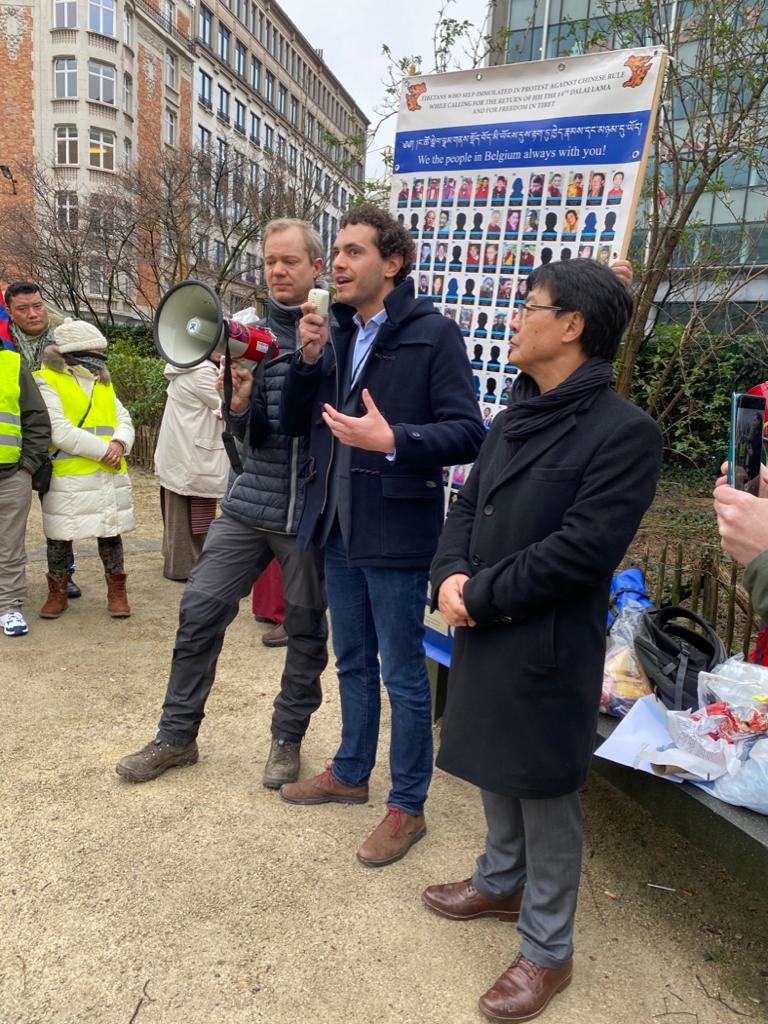
Belgian MP Samuel Cogolati addressing March 10 anniversary (file photo)
Brussels: The Belgian Foreign Minister, Mr Philippe Goffin, in a response to Mr Samuel Cogolati (Ecolo-Groen), member of Federal Parliament of Belgium, said that the developments on the issue of climate change, environmental degradation, protection of biodiversity and sustainable development in Tibet are closely monitored by Belgian Foreign Ministry and its Embassy in Bejing. He also cited the instance where the issue was raised with a visiting delegation from the so-called Tibet Autonomous Region in late 2019.
The Minister also has elaborated on the ways in which Belgium engages with China on these issues at the UN fora and its multilateral conventions. Under these frameworks, insisting on a policy of transparency, aiming for sufficient visibility enables scientific reports which highlight the impact of climate change on the Himalayan range and the Tibetan Plateau.
The response given on April 25 is given below in full in English:
Response from the Minister of Foreign Affairs and Defense to the oral question in committee n° 55003530C by Mr Samuel Cogolati (Ecolo-Groen) concerning “Climate change and environmental degradation on the Tibetan plateau”
“The issue of climate change, environment degradation, protection of biodiversity and sustainable development in Tibet were notably addressed during a meeting, on 19 November 2019, between the Director General of the bilateral relations and a Tibetan delegation presided by Mr Luobudungzhu, Executive Vice-President of the Autonomous Region of Tibet.
Developments are closely being monitored by our Embassy in Beijing as well as the relevant services of the Ministry of Foreign Affairs.
– Both for COP15 of the United Nations Convention on Biological diversity and for COP26 of the United Nations Framework Convention on Climate change, multilateral negotiations take place, which allow the parties to these treaties to establish objectives in a consensual manner.
These objectives include a system of transparency to which the individual parties must comply.
For these two multilateral conventions, it is not customary to focus on challenges specific to a region or a sub-region. During these two COPs, Belgium will stick to this multilateralist practice and therefore has no intention asking that the issue of the Tibetan plateau be addressed in particular.
However, we will certainly insist that negotiations and policy be guided by scientific work, that of the Intergovernmental Panel on Climate Change (IPCC) and the Intergovernmental Platform on Biodiversity and Ecosystem Services (IPBES) in particular.
This means we hope that, as part of this process, sufficient visibility will be given in particular to the recent special report of the IPCC on the Ocean and the Cryosphere. This report highlights in particular the impact of Climate change on the Himalayan range and the Tibetan plateau.”
-Filed by Office of Tibet, Brussels





